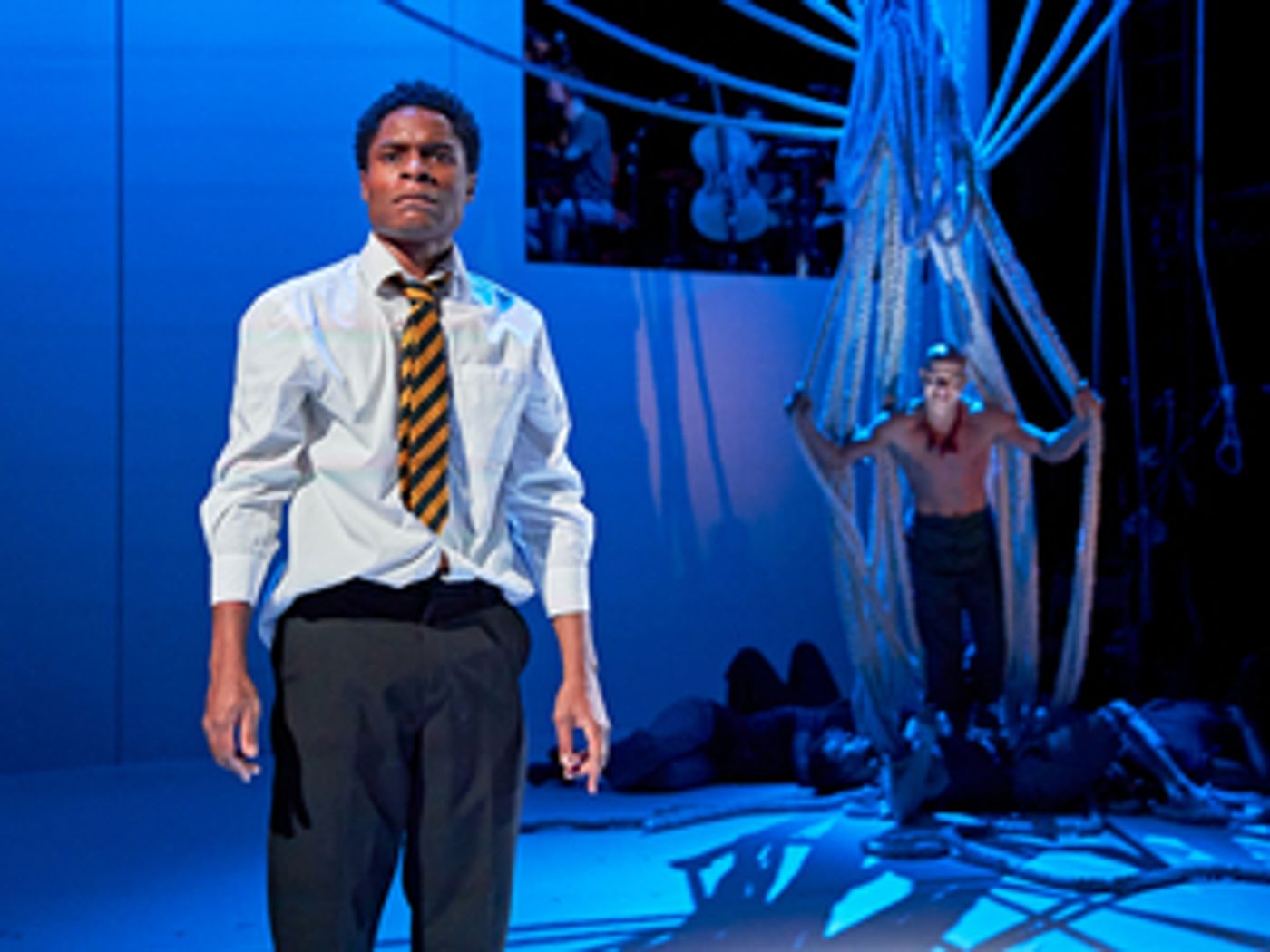Review: A MONSTER CALLS, Chichester Festival Theatre

![]()
Produced by the Old Vic, in association with Bristol Old Vic, Oliver award-winning A Monster Calls is making its way around the UK on tour, and has just closed its appearance at Chichester Festival Theatre.
Directed by Sally Cookson and adapted from the novel by Patrick Ness (inspired by the late Siobhan Dowd), A Monster Calls tells the tale of 13-year-old Conor, who is struggling to cope with his seriously ill mum and the world that carries on around him, seemingly oblivious to the burdens he carries. Nobody will speak to him about it, and nobody will tell the truth, and he struggles with nightmares and monsters of his own; until one day, a real monster appears.
Conor hopes this creature, which hails from an old yew tree in the garden, will be his mum's salvation. But, as in all good stories, nothing is so straightforward - and for good reason.
This is a modern fairytale that weaves together fables and legends with realistic circumstances, exploring human nature and relationships with on-stage magic and mystery.
Transformed from a visual (and award-winning) Young Adult novel into a movie, before being adapted into a stage production, this story has captured the hearts of many in its different forms, and its latest guise is no less astonishing and captivating.
This production of A Monster Calls is more than just a story of one boy and his sick mother. It's an exploration into what it means to be human, and a journey of discovery and acceptance. The special thing about this production, though, is that the acceptance is that of life's imperfections, complexities and contradictions.
A Monster Calls is a story that twists and turns right from its roots, from which grows some meaningful life lessons. The many tales told by the Monster that branch off into seemingly different directions, and the core plot, all join together within the final few minutes, peaking in a eureka moment that is not so much a quiet revelation as a powerful punch in the stomach.
There are many elements to this show, and at first, when coupled with the intensity of the visual production, it may seem somewhat complicated. But as time moves on, connections slip into place, and all the pieces come together, culminating in a truly beautiful piece of theatre. Both the plot and the production are just like life, which in itself is never straightforward.
The staging is spectacular and is somewhat reminiscent of Simon Stephens' adaptation of Mark Haddon's A Curious Incident of a Dog in the Night-Time. Michael Vale (Set Designer) has spoiled us with lifts, elevations, and extremely clever stage mechanics. The ropes which hang from the ceiling, with a simple wind and twist, becomes the yew tree, the monster, a clock, and the interiors of a car. The show defies gravity and the thick ropes that transform the stage are the yarns of the story itself.
Other than the ropes, the stage is sparse, save for a few old-fashioned school chairs lined up for the cast to sit on. There are few props or scenery needed; a testament to the powerful storytelling. The majority of the cast are on stage at all times as the ensemble, switching between roles, playing school children, kitchen appliances and tree branches.
Indeed, the ensemble's manipulation of the branches and roots of the yew tree demonstrates their characters' abilities to shelter, support and save Conor in the Monster's inevitable absence. The boy protagonist has the community he needs around him, and the sense of this is evident through the cast's ability to work as one.
This unity among the cast is a testament to their compatibility as actors, and the clear connection they have with the story.
Keith Gilmore as the Monster is imposing and somewhat menacing, with magnificent stage presence. He proves that not all monsters are out to destroy lives, but some are there to save them; his hard, weathered exterior giving way to a sturdy and protective core.
Ammar Duffus plays Conor with thrilling passion and energy. He embodies the inner conflict and torment of a teenager coping with some of life's biggest challenges and ensures that all eyes are on him throughout the performance. Kaye Brown as Grandma and Maria Omakinwa as Mum are also both terrific as strong yet contrasting female characters within this tale.
Special mentions, too, go to Greg Bernstein's Harry and Kel Matsena as Anton, as well as Jade Hackett's Sully. These school-yard bullies keenly possess the unnerving intimidation of cruel teenagers, transporting audiences straight back to their juvenile years. Matsena's Anton is endearingly uncomfortable with his role in this harassment; another little-but-large detail that adds extra depth to the whole play's exploration of the complexities of human nature.
The music, composed by Benji Bower and performed by Seamas Carey and Luke Potter, gives the show an ethereal feel, emphasising its potential as a modern, electronic fairytale. The way that the band is visible further outlines the significance of the sound in the story; the musicians are well and truly embedded in the performance and their notes respond perfectly to the movements and emotions on stage. It's this music that might possibly tip audience members over the edge and into tears.
It's no wonder why this stage production has been met with accolades and adoring audiences. A Monster Calls is powerful and extraordinary, and is both visually and emotionally compelling. This is a beautiful beast of a story that offers some big life lessons and a truly memorable theatre experience.
A Monster Calls continues its UK tour at the Theatre Royal Nottingham until 22 February.
Photo Credit: Manuel Harlan
Reader Reviews
Videos

